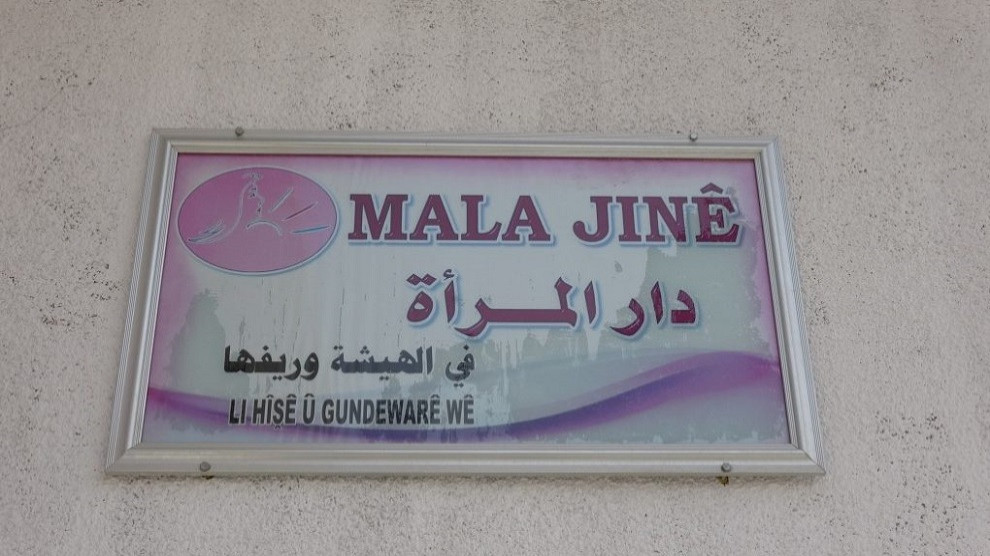Mala Jinê: "Women must defend women!"
Women's centres play a central role in solving social problems in northern and eastern Syria. Naima Mehmud reports on her work in Hesekê in times of Turkish attacks and coronavirus pandemic.
Women's centres play a central role in solving social problems in northern and eastern Syria. Naima Mehmud reports on her work in Hesekê in times of Turkish attacks and coronavirus pandemic.

In an interview with Naima Mehmud, co-chair of Mala Jinê [Women’s house] in the canton of Hesekê, "Women Defend Rojava" spoke about the work of the women's centre under the influence of the Turkish invasion of northern Syria and the Coronavirus pandemic.
Mala Jinê is one of the social and communal institutions that were established as of 2011 in the course of the revolution. They are part of the women's movement under the umbrella of Kongreya Star and have been established in the entire region of Northern and Eastern Syria as one of the pillars of institutions representing the autonomous administration of Northern and Eastern Syria.
Their task is to support women in solving their problems and, together with the consensus committees, to participate in overcoming gender-specific conflicts. In the Mala Jinê project, two of the basic principles of the revolution are crystallized: to end the oppression of women and to understand, address and resolve conflicts within the community. Among the problems facing women are polygamy, forced marriages, inheritance issues and male violence. Despite the changes in the law (such as the prohibition of polygamy or the raising of the legal minimum age for marriage to 18 years), problems continue to exist and a long-term and also educational effort is needed to overcome them completely.
As a women's centre and a kind of "house of justice", Mala Jinê assumes a mediating role by holding talks with the people affected - a woman, a couple, a family, two or three families or tribes - whenever possible and seeking a solution together. In serious cases of male violence or in conflicts that cannot be resolved, cooperation with the Asayish (security forces) and the justice system takes place. If necessary, punitive measures are taken.